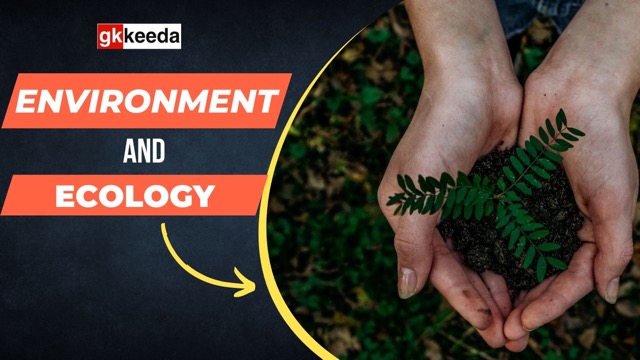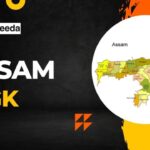Environment And Ecology Current Affairs
Environment and Ecology GK Quiz (General Knowledge) covers Ecology and functions of an ecosystem, environmental problems, climate change, ozone depletion, acidification and eutrophication, Environmental pollution includes air, water, soil, noise, radioactive, solid waste, Bioremediation, Biodiversity, Protected Area Network (PAN), National Parks, Wildlife Sanctuaries, Biosphere Reserve, Village and Panchayat forest, Biodiversity Conservation efforts, Bioprospecting, biopiracy, Conservation efforts – India and the World, Sustainable Development, Environment Impact Assessment (EIA).
1. Which of the following plays an important role in the cause of rainfall?
(A) Evaporation
(B) Condensation
(C) Both Evaporation and Condensation
(D) Filtration
Show Answer
Correct Answer: (C)
Explanation:
During the daytime, water is heated and a large amount of water goes into air. The rising hot air carries water vapors into the upper atmosphere, where it expands and cools. The water vapors condensed upon dust particles and formed clouds. When the clouds are heavy enough they fall in the form of rain.
2. Name the type of algae that inhabit the sea and are likely to be found in the deepest waters.
(A) Red algae
(B) Brown algae
(C) Green algae
(D) Fire algae
Show Answer
Correct Answer: (A)
Explanation:
About Red Algae:
- They are able to grow in the depths of seas as compared to other algae because of the presence of more quantity of phycoerythrin pigment.
- Phycoerythrin pigment can absorb the blue-green wavelengths of light that can reach the maximum depth of water and help in photosynthesis.
3. Ecological niche of an organism denotes:
(A) The status of an organism within a particular community
(B) Habitat of the organism
(C) On whom the organism feeds
(D) All of the above
Show Answer
Correct Answer: (A)
Explanation:
About Ecological Niche:
- A niche is the unique functional role of a species in an ecosystem.
- It is unique to a particular species, which means two species can not have identical ecological niche.
- It plays an important role in conservation of organism.
Type of Niche:
- Habitat Niche – where species live.
- Reproductive Niche – how and when species reproduce.
- Food Niche – where species eat or decompose and with whom it competes.
- Physical and Chemical Niche – temperature, land slope, land shape, humidity etc.
4. How human body acclimatized to the altitude sickness in higher altitude during mountain climbing?
- Increasing the oxygen binding capacity of hemoglobin.
- Increasing the breathing rate.
- Decreasing production of RBC.
Select the correct code given below:
(A) 1 and 2 only
(B) 2 only
(C) 2 and 3 only
(D) 1 only
Show Answer
Correct Answer: (B)
Explanation:
About Altitude Sickness:
- it is defined as the physical distress experienced by human body from difficulty adjusting to lower oxygen pressure at high altitude.
- Its symptoms include fatigue, nausea and heart palpitations.
How human body adjust?
- Our body compensate low oxygen availability by increasing production of RBC, decreasing the binding capacity of haemoglobin, and by increasing the breathing rate.
- Human body acclimatised gradually and stop experiencing altitude sickness.
What is acclimatization?
- It is the long term adjustment by human body to high altitude by primarily due to increased production of Red Blood Cells (RBC) and capillary tissue perfusion.
5. Consider the following statements regarding Cartagena Biosafety Protocol (CBP):
- CBP is an additional agreement to the Convention on Biological Diversity (CBD).
- It governs the fair and equitable sharing of benefits arising from utilisation under Convention on Biological Diversity (CBD).
- India is a signatory to the protocol.
Select the correct code given below:
(A) 1 and 2 only
(B) 2 and 3 only
(C) 1 and 3 only
(D) 1, 2 and 3
Show Answer
Correct Answer: (C)
Explanation:
About Cartagena Biosafety Protocol (CBP):
- It is a protocol to the Convention on Biological Diversity which aims to ensure the safe handling, transport and use of living modified organism (LMOs) resulting from biotechnology.
- LMOs may have adverse effects on biological diversity and human health.
- It was adopted as a supplementary agreement to Convention on Biological Diversity (CBD) on 29th January 2000 and entered into force on 11th September 2003.
- There are total 171 nations parties to the protocol including India.




No Comment! Be the first one.